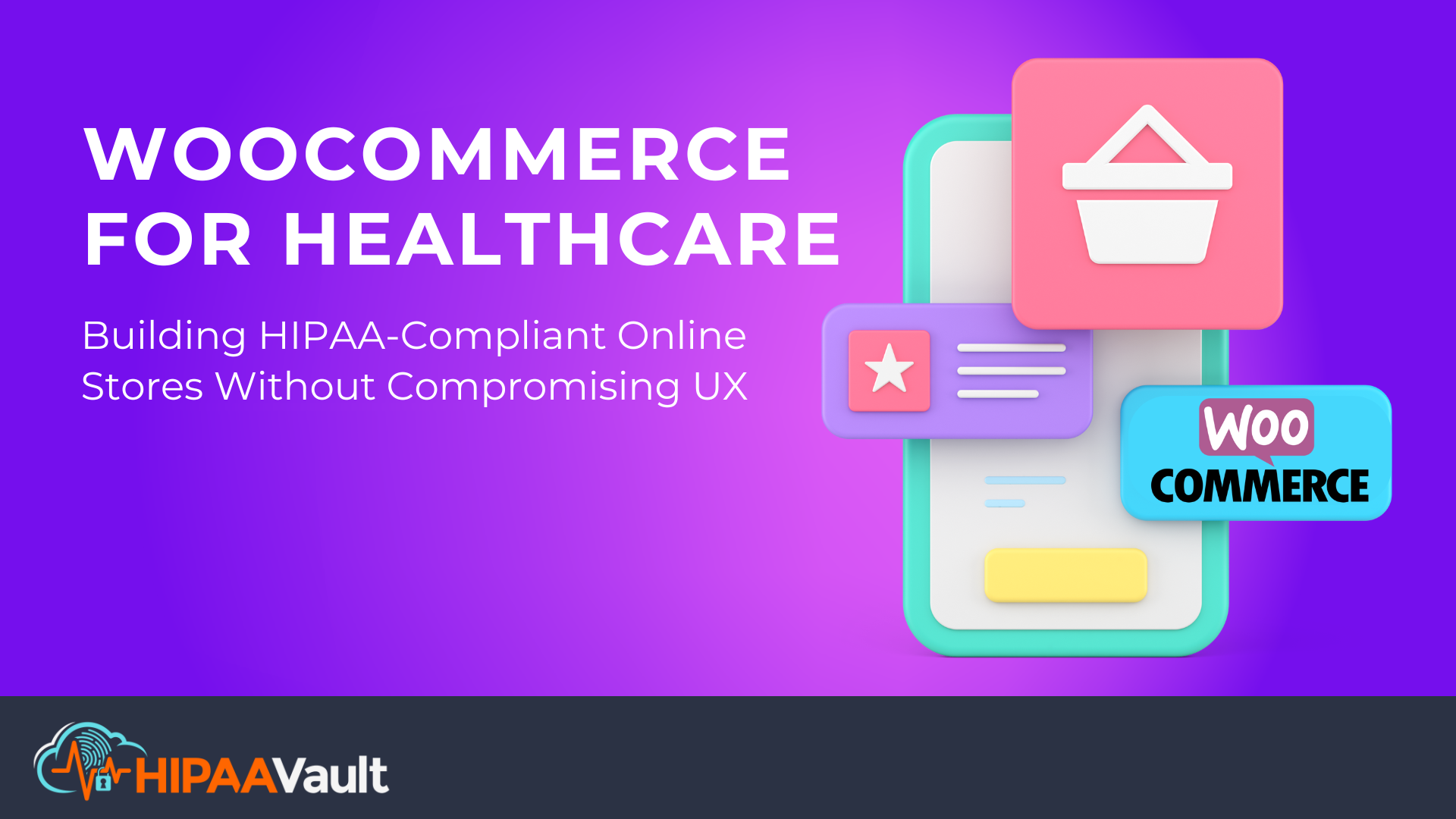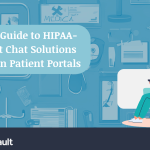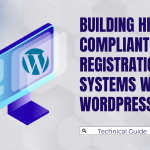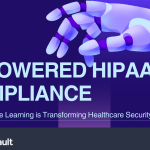
WooCommerce for Healthcare: Building HIPAA-Compliant Online Stores Without Compromising UX
Introduction
Healthcare data breaches cost an average of $10.1 million per incident—the highest of any industry sector for 12 consecutive years. For healthcare organizations venturing into e-commerce, these sobering statistics highlight why building online stores that adhere to HIPAA requirements is critical to success.
The pandemic has accelerated online shopping for healthcare products and services, from prescription refills to telehealth consultations. Yet healthcare organizations face unique regulatory challenges that typical retailers don’t encounter when implementing e-commerce platforms like WooCommerce.
At HIPAA Vault, we’ve guided dozens of healthcare providers through implementing HIPAA-compliant WooCommerce stores without sacrificing user experience. This guide covers essential considerations to achieve this delicate balance.
HIPAA Compliance Fundamentals for E-commerce
When healthcare organizations sell online, they often collect Protected Health Information (PHI) that falls under HIPAA regulations. Customer accounts may link to medical histories, prescription details, insurance information, and order histories that reveal medical conditions.
HIPAA’s Technical Safeguards mandate specific security measures for electronic PHI. According to 45 CFR §164.312, covered entities must implement technical security measures to guard against unauthorized access to data transmitted over electronic networks.
For WooCommerce stores, this means implementing TLS/SSL encryption for data in transit and AES 256-bit encryption for data at rest, conforming to NIST standards. Additionally, the HIPAA Privacy Rule requires clear privacy notices, appropriate authorizations, and procedures for customers to access their data.
Transforming WooCommerce for Healthcare
Out-of-the-box WooCommerce installations don’t meet HIPAA requirements. To transform the platform, healthcare organizations need:
- A HIPAA-compliant hosting solution instead of standard WordPress hosting
- Database encryption for all PHI stored in WordPress
- Multi-factor authentication for administrative access
- Comprehensive audit logging of all system activities
- Secure, encrypted backup solutions
The WordPress ecosystem offers thousands of plugins, but many introduce security vulnerabilities. When selecting WooCommerce extensions, consider the developer’s security track record, update frequency, code quality, and encryption capabilities. At HIPAA Vault, we maintain a curated list of HIPAA-compatible plugins to save clients extensive research.
HIPAA Vault’s Secure Hosting Infrastructure
Standard hosting environments typically fall short of HIPAA requirements. HIPAA Vault’s secure hosting is specifically designed for healthcare with SOC 2 Type II certified data centers, enterprise-grade firewalls, intrusion detection systems, and server hardening protocols.
Our hosting environment implements AES 256-bit encryption for data at rest and TLS 1.3 encryption for data in transit. Web Application Firewalls protect against common attack vectors while real-time malware scanning identifies potential threats before they cause harm.
Healthcare e-commerce platforms also require robust backup capabilities. Our disaster recovery solutions provide automated encrypted backups, geographically dispersed redundancy, and point-in-time recovery options to ensure business continuity even during disruptions.
Secure Payment Processing
Healthcare organizations should select payment gateways willing to sign Business Associate Agreements (BAAs) that maintain PCI DSS Level 1 compliance and offer end-to-end encryption. Providers like Stripe (with a BAA), Square for Healthcare, and PayPal (with appropriate configurations) work well in HIPAA-compliant environments.
The safest approach for handling payment information is implementing tokenization, replacing sensitive card details with unique identification symbols. This approach substantially reduces compliance burden by limiting PHI exposure and simplifies recurring billing implementation, which is essential for subscription services like ongoing care and regular medication refills.
Customer Account Security and Privacy
Customer accounts in healthcare e-commerce require stronger protection than typical online stores. Implement multi-factor authentication, strong password requirements, account lockout policies, and secure password recovery workflows. Session timeout controls prevent unauthorized access on shared devices.
HIPAA-compliant e-commerce sites need comprehensive privacy policies addressing how PHI is collected, used, and protected. These policies should be prominently displayed and require affirmative consent during account creation.
Access controls should limit which staff members can view customer information based on roles and justify why sensitive data needs viewing. Time-limited access automatically expires permissions when no longer needed, while comprehensive logging creates audit trails of all interactions with patient data.
Balancing Security and User Experience
Security requirements don’t have to ruin user experience. Progressive disclosure allows requesting sensitive information only when necessary. Contextual security explanations help users understand why certain measures exist, while biometric authentication provides strong security with minimal effort for mobile users.
Mobile optimization is crucial as over 60% of healthcare e-commerce traffic comes from mobile devices. Ensure your HIPAA-compliant store features responsive design, touch-friendly interface elements, and streamlined forms requiring minimal typing. Support for mobile payment options like Apple Pay and Google Pay reduces friction at checkout.
Performance optimization techniques like content delivery networks that maintain encryption, image optimization, and strategic caching of non-PHI content ensure security doesn’t compromise site speed—a critical factor in conversion rates.
Implementation Checklist
Building a HIPAA-compliant WooCommerce store requires careful planning but delivers substantial benefits. Use this checklist to guide your implementation:
- Select a HIPAA-compliant hosting provider
- Implement appropriate encryption for data at rest and in transit
- Configure access controls and authentication systems
- Select and vet compatible WooCommerce plugins
- Establish secure payment processing workflows
- Develop comprehensive privacy policies
- Create documentation and training programs
- Implement ongoing monitoring and maintenance protocols
- Test all systems for security vulnerabilities
- Execute Business Associate Agreements with all partners
Ready to build your HIPAA-compliant WooCommerce store? Contact HIPAA Vault today for a consultation on how our secure hosting solutions can support your healthcare e-commerce goals.




